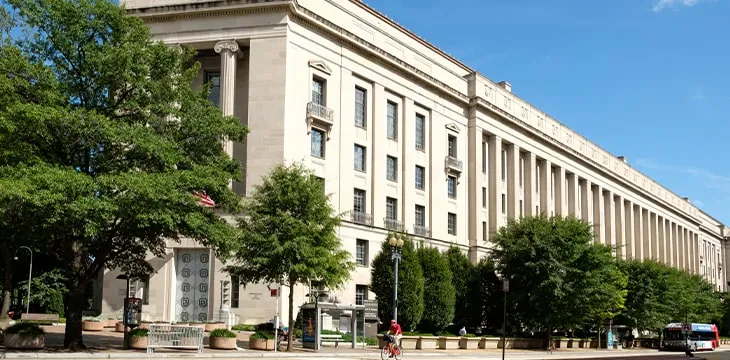|
Getting your Trinity Audio player ready...
|
The founder of the now defunct Nevada-based digital assets company My Big Coin Pay Inc., Randall Crater, has been convicted by a federal jury in connection with a fraudulent digital assets scheme that misappropriated over $6 million of investor funds.
According to a U.S. Department of Justice (DOJ) release, the 51-year-old New Yorker was found guilty of four counts of wire fraud, three counts of unlawful monetary transactions, and one count of operating an unlicensed money transmitting business.
The case, U.S. v. Crater, U.S. District Court, District of Massachusetts (No. 19-cr-10063), has been a long and drawn out one. Crater founded My Big Coin Pay Inc in 2013 and operated it till 2017. The case details reveal that during this time, he marketed a fraudulent virtual currency—My Big Coin—which he claimed was fully functional and backed by $300 million worth of gold.
He also claimed that his company partnered with payments service provider MasterCard and that the token could be readily exchanged for cash or other digital assets. However, all the claims were false, and Crater was instead misappropriating investors’ funds on personal luxury items for himself.
The CFTC brought commodities fraud charges against Crater and his company in 2018. The CFTC also filed charges against the company’s CEO John Roche, and two associates—Mark Gillespie and Michael Kruger.
Crater was arrested in 2019, and under U.S. laws, he is liable to face between three to twenty years of imprisonment and pay fines of up to $250,000 for each charge. His sentencing is scheduled for October 27 by the U.S. District Court Judge Denise J. Casper.
U.S. Attorney Rachael S. Rollins remarked that Crater is not different from any other fraudster who has preyed on investors in the blooming digital assets market.
“Crater saw the burgeoning popularity of crypto as a chance to get rich quick through an unscrupulous fraud scheme cloaked by flashy marketing tactics and outright lies. In the end, he is just another fraudster who made his way into the booming world of cryptocurrency,” she said.
DOJ catching up with digital assets fraudsters
The Justice Department, in collaboration with other law enforcement agencies like the FBI, has been getting increasingly successful in clamping down on digital asset scammers and fraudsters. This has been especially so since the department announced the creation of its National Cryptocurrency Enforcement Team (NCET) last year.
Earlier this year, the department announced its biggest financial seizure ever when it got hold of $3.6 billion worth of BTC that was proceeds from the 2016 hack of digital assets exchange Bitfinex.
The DOJ also apprehended the couple Ilya Lichtenstein, 34, and Heather Morgan, 31, charging them with conspiracy to launder money.
Watch: US Congressman Patrick McHenry on Blockchain Policy Matters with Bitcoin Association’s Jimmy Nguyen

 09-09-2025
09-09-2025 





